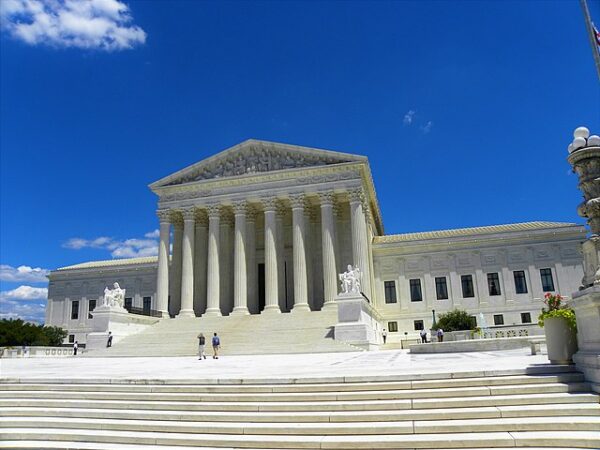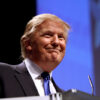The Supreme Court on Monday reportedly agreed to hear a prominent Republican-led challenge to long-standing federal restrictions on campaign spending by political parties in coordination with candidates—a case that could reshape the future of U.S. elections.
At issue is a half-century-old provision of the Federal Election Campaign Act that caps how much parties can directly coordinate and finance election efforts for their nominees—spending now limited to approximately $4 million in Senate races and $127,000 for House campaigns, depending on state population.
GOP plaintiff committees argue these thresholds infringe on the First Amendment, stifling free political speech and forcing donors toward super PACs.
The controversy traces back to a 2022 lawsuit filed by the National Republican Senatorial Committee, National Republican Congressional Committee, then-Senator J.D. Vance of Ohio, and then-Representative Steve Chabot, challenging enforcement of these limits.
The Sixth Circuit upheld the limits, citing an earlier Supreme Court decision from 2001.
But with Chief Justice John Roberts and a conservative majority on the bench, lawmakers succeeded in persuading the court to revisit the ruling.
In an unusual turn, the Justice Department—under the Trump administration’s influence—did not defend the legislation.
Officials argued that the limits are unconstitutional, urging the Court to reconsider and providing procedural grounds for reviewing the 2001 decision.
Democratic groups, including the DNC and congressional campaign committees, have sought permission to defend the law’s constitutionality in court.
If the Supreme Court overturns the coordinated‑spending limits, the landscape of federal campaigning could shift dramatically.
Major party committees would likely regain significant influence, offering donors avenues to directly fund mutual campaigns. Advocates argue it would strengthen party infrastructure and diminish the sway of outside groups.
But critics warn of renewed threats to electoral integrity. Loosening restriction may pave the way for large donors to funnel contributions to parties aligned with their preferred candidates, exacerbating the influence of wealthy backers.
Election-law experts assert that dismantling these safeguards could both dilute transparency and erode public trust in democratic processes.
The Court is expected to hear arguments in the case, National Republican Senatorial Committee v. FEC, during the fall term commencing in October.
The outcome may follow a path set by landmark decisions such as Citizens United (2010) and McCutcheon (2014), which expanded protections for political spending under free‑speech grounds.
As the case unfolds, its ramifications will reach beyond finance law. It touches on fundamental questions about transparency, party power, and the integrity of democratic institutions—challenging established norms just as the nation enters another election cycle.
[READ MORE: Pro-Trump Super PAC Releases Brutal Ad Attacking Rep. Thomas Massie]



